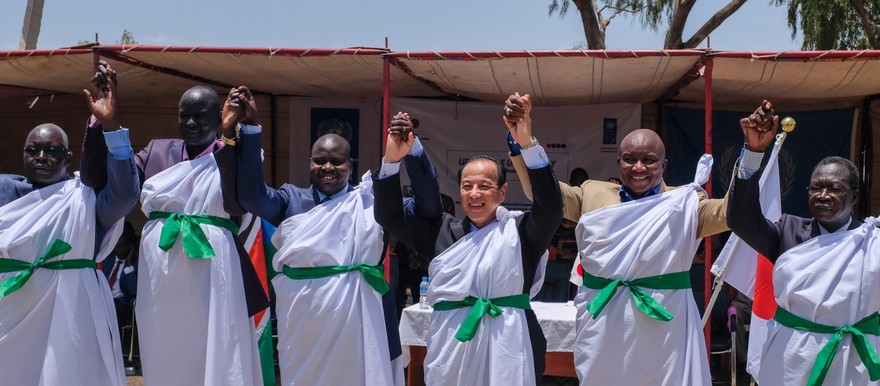The United Nations Development Programme’s (UNDP) and the government of Japan signed a Memorandum of Understanding to rehabilitate Upper Nile University’s Malakal campus as well as build a cultural center at the University of Juba.
At the signing ceremony on Monday in Malakal, the Ambassador of Japan, H.E. Seiji Okada, described this initiative as “an important first step for the recovery of Malakal”.
While UNDP’s Resident Representative, Dr. Kamil Kamaluddeen, said the university, “will generate opportunities for the young generation, reorient them from crises and give them space to become important social actors that can shape the future of the nation”.
For his part, the Minister of Higher Education Science and Technology Hon. Yien Oral Lam said the institution was faced with three key challenges.
“The university was not well equipped, no facilities. Our budget was not enough, we were supposed to get 5 percent of the national budget annually but because of the current situation only get minus one. Another challenge was that the parents were not able to support their children because of the economic crisis,” he noted.
He also said Upper Nile University in Malakal was devastated by the war.
Meanwhile, the students of Upper Nile University speaking to Radio Tamazuj expressed their joy saying they are ready to go back to their campus.
Bakhita Mabor is a 3rd-year student majoring in the faculty of Agriculture, applauded the government of Japan and UNDP for their selfless support in the education sector more especially for bringing back hope to the people of Malakal.
“All the students will go back and we will feel very happy at home. On the other facet, the internally displaced persons will return from POCs and camps to their homes. This is another way of restoring peace in Malakal,” Bakhita said.
Upper Nile University students’ union leader Emmanuel Ladu Kose, said they have been facing many challenges since their campus was relocated to Juba.
“I am willing to go back to the main campus. We have been facing a lot of challenges. The environment in Juba is not conducive for learning, the lecture halls cannot accommodate all the students and there no hostels,” Ladu said.
The University of Upper Nile is currently operating from Juba as the escalation of conflict forced the university to close its campuses in 2014.




